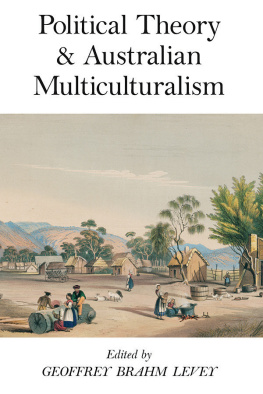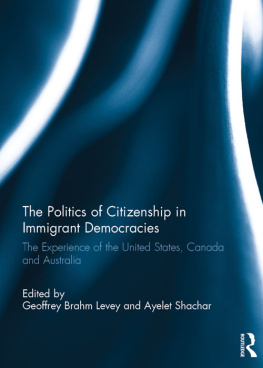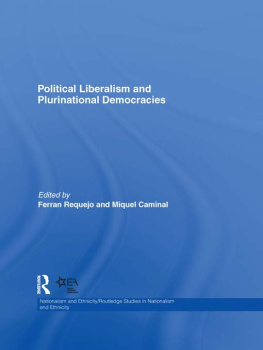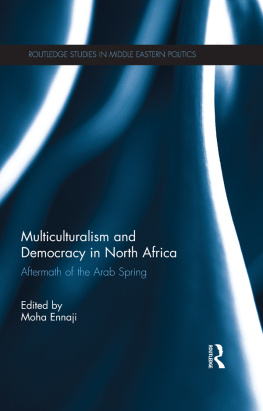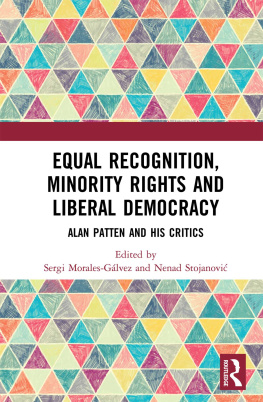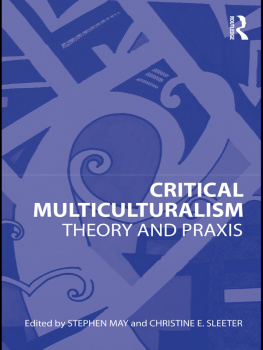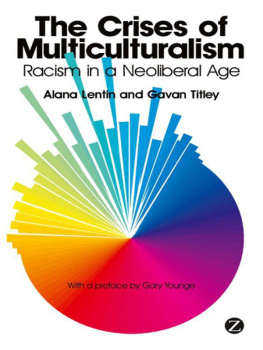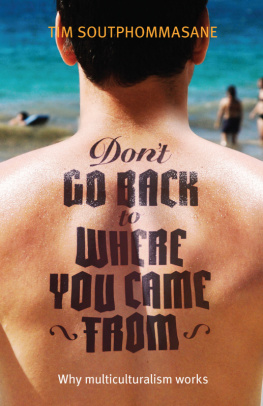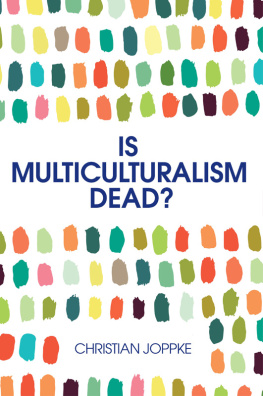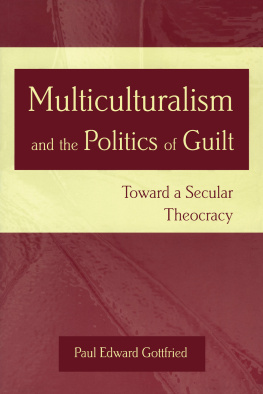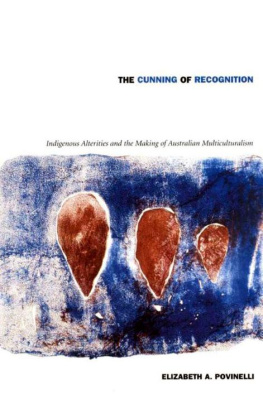Published in 2008 by
Berghahn Books
www.berghahnbooks.com
2008, 2012 Geoffrey Brahm Levey
First ebook edition published in 2011
First paperback edition published in 2012
All rights reserved. Except for the quotation of short passages
for the purposes of criticism and review, no part of this book
may be reproduced in any form or by any means, electronic or
mechanical, including photocopying, recording, or any information
storage and retrieval system now known or to be invented,
without written permission of the publisher.
Library of Congress Cataloging-in-Publication Data
/ edited by Geoffrey Brahm Levey.
p. cm.
In association with the Academy of the Social Sciences in Australia.
Includes bibliographical references and index.
ISBN 978-1-84545-492-0 (hbk.) ISBN 978-0-85745-629-8 (pbk.) ISBN 978-0-85745-029-6 (ebk.)
1. MulticulturalismPolitical aspectsAustraliaCongresses. 2. National characteristics, AustralianCongresses. I. Levey, Geoffrey Brahm. II. Academy of the Social Sciences in Australia.
HN850.Z9M846 2008
British Library Cataloguing in Publication Data
A catalogue record for this book is available from the British Library
This book is the product of a workshop sponsored by the Academy of the Social Sciences in Australia and the Australian Government Department of Immigration and Multicultural and Indigenous Affairs.
ISBN 978-1-84545-492-0 hardback
ISBN 978-0-85745-629-8 paperback
ISBN 978-0-85745-029-6 ebook
Yet, Sir, there is one heroic achievement open to us, and that is to confer upon this country that large measure of freedom, under the protecting shade and influence of which an ennobling and exalted patriotism may at last arise, which will enable the youth of this colonythe youth of future agesto emulate the ardour, the zeal, and the patriotism of the glorious youth of Sparta and of Rome, and to teach and make them feel that ennobling sentiment which is conveyed in the line of the Roman lyric Dulce et decorum est pro patri mori.
Sir, this is not our destiny, but I trust it will be the destiny of another generation, who shall arise with larger feelings, and, it may be, purer aims.
William Charles Wentworth, Debate on the Second Reading of the New South Wales Constitution Bill, Legislative Council of New South Wales, 6 December 1853
Acknowledgments
On returning to Australia in late 1995 after many years studying, researching, and teaching in the United States, Israel, and England, I was struck by how little interest there appeared to be among Australian political theorists in Australias experiment with multiculturalism. This silence compounded the more understandablealthough no less regrettablelack of attention accorded the Australian case in the debates over multiculturalism already then raging in international political theory. In due course, I decided to do something about this. The opportunity came in July 2004 when the Academy of the Social Sciences in Australia (ASSA) sponsored a two-day workshop I organized on Australian Multiculturalism and Political Theory: Balancing Rights and Responsibilities in a Diverse Society, held at the University of New South Wales in Sydney. This book is the outcome of that workshop.
I am grateful to all those who participated in the workshop. The intellectual exchange was enhanced by papers also from Larissa Behrendt, Susan Dodds, and Laksiri Jayasuriya, and by several people who served as discussants: Adam Czarnota, Martin Krygier, Maria Markus, Garth Nettheim, Paul Patton, and Aleksandar Pavkovic. The revised comments of Krygier and Markus are included here. I am especially indebted to the contributors to the book for their readiness to revise their papers in light of our discussions and more recent developments in Australian politics, and for their forbearance during the editorial process. These essays have been peer reviewed, and though they cannot be named, the anonymous reviewers are also to be thanked for their critical input.
The workshop was fortunate in having the substantial sponsorship also of the Australian governments then Department of Immigration and Multicultural and Indigenous Affairs (DIMIA). The Faculty of Arts and Social Sciences and the Faculty of Law at the University of New South Wales also supported the event. I record my thanks to each of these bodies and to ASSA for their support. It was a pleasure working on the organizational aspects of the project with ASSAs Mark Pinoli, and with DIMIA senior officer Richard Manderson (who also attended the workshop). Peter Balint was a welcome and enthusiastic sounding board throughout the project, and his collegial input is much appreciated. A version of Duncan Ivisons chapter first appeared as The Moralism of Multiculturalism in the Journal of Applied Philosophy 22, no. 2 (2005): 17184, and I thank Blackwell Publishing for permission to reprint that material here.
Finally, I am grateful to Marion Berghahn of Berghahn Books for seeing the international merit of this project, and to her team for their editorial and production finesse.
GBL
Sydney

